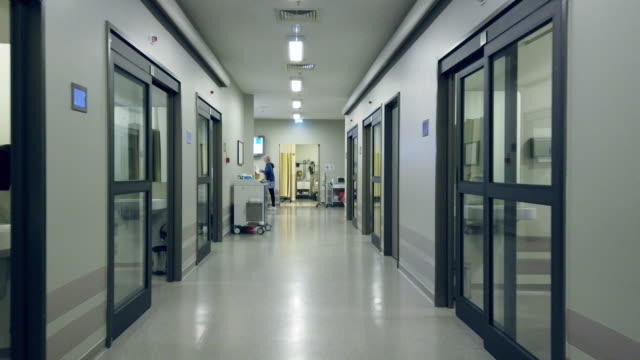How Many Laser Hair Removal Treatments Are Necessary

Laser hair removal has gained important recognition as an effective methodology for attaining smooth skin with out the effort of conventional hair removal methods. However, many people might encounter variable outcomes from these treatments, typically influenced by a range of things. How Many Laser Sessions Are Needed For Hair Removal. One crucial facet that significantly affects outcomes is hormonal adjustments within the physique. Understanding how these hormonal fluctuations work together with laser hair removal might help individuals make informed decisions regarding their therapies
Hormonal adjustments can happen as a end result of numerous reasons, such as puberty, being pregnant, menstruation, menopause, and circumstances like polycystic ovary syndrome. Each of these phases brings about unique shifts in hormone levels, which might immediately influence hair growth patterns and the effectiveness of laser therapies. For instance, during puberty, a rise in androgens, a bunch of hormones that includes testosterone, can lead to extra strong hair growth, significantly in areas the place individuals may not need it, such because the face or body.
During being pregnant, ladies experience a surge in hormones corresponding to estrogen and progesterone. This hormonal shift can lead to alterations in hair growth. Some girls might notice thicker or extra abundant hair, whereas others might experience the alternative effect. Laser hair removal may not be ideal throughout this stage as a result of quickly changing hormonal panorama. Medical professionals typically suggest waiting till after childbirth to resume laser therapies.
How Many Laser Hair Removal Sessions For Legs
The menstrual cycle additionally brings about hormonal fluctuations that may have an effect on hair progress and skin sensitivity. For many women, the week leading as a lot as menstruation sees a rise in androgens, which might stimulate hair follicles. Laser therapies carried out throughout this time might not yield the best results. Furthermore, hormonal changes can heighten skin sensitivity, increasing the chance of unwanted effects similar to redness or swelling.
Menopause marks another significant transition in hormonal steadiness for girls. The decrease in estrogen levels can result in adjustments in hair progress patterns. Some ladies could discover that hair becomes thinner in certain areas whereas turning into coarser and extra cussed in others. This unpredictability can affect how well laser hair removal works. It would possibly necessitate changes in remedy protocols or the number of sessions required.
How Many Laser Treatments For Dark Skin Hair Removal
Polycystic ovary syndrome is a situation marked by hormonal imbalance and can lead to increased hair development in undesirable areas. For those dealing with this syndrome, laser hair removal could also be a more useful tool. However, hormonal remedy for PCOS can also affect hair development and removal outcomes. Individuals might need to find a balance between managing their hormonal treatment and committing to laser sessions.
Hormones also can affect skin color and texture, each very important elements in relation to laser hair removal. The treatment works greatest when there is a robust contrast between the hair color and the encompassing skin. Hormonal modifications that end in elevated pigmentation or uninteresting skin can impair the laser's capability to target hair follicles effectively. Those seeking treatment should make certain that their skin tone remains consistent before and during the sessions.
Understanding the technology behind laser hair removal processes additionally sheds gentle on how hormonal fluctuations can impact outcomes. The process usually relies on the absorption of targeted light by the pigment in hair follicles. If hormonal modifications lead to variations in hair pigmentation, it may lead to much less efficient therapy outcomes. Darker hair usually absorbs the sunshine better than lighter shades, and changes in hormone ranges can typically lead to variations in hair color, affecting the overall effectiveness of the process.
How Many Sessions For Permanent Hair Removal
Timing is one other important think about scheduling laser hair removal sessions. For individuals experiencing hormonal adjustments, strategizing the timing of appointments could be pivotal. Hormonal cycles can vary in size and intensity primarily based on private health and environmental elements. Recognizing when hormonal levels stabilize may help patients obtain probably the most satisfactory outcomes.
In many cases, a personalised strategy to laser hair removal may end up in higher outcomes. Consulting with healthcare providers who're aware of the person's hormonal status permits for a tailored remedy plan. They can provide insights into the most effective instances for laser sessions and recommend various treatments or approaches if hormonal fluctuations are vital. Furthermore, keeping an open line of communication about any modifications in health or medicine use can even contribute to the success of hair removal remedies.
Post-treatment care is crucial for everyone, particularly these experiencing hormonal modifications. Proper skincare after laser sessions can mitigate unwanted side effects and optimize results. Utilizing moisturizing lotions or soothing brokers might help calm any skin irritation that will arise due to hormonal sensitivities. Maintaining an excellent skincare routine assists with therapeutic and keeps skin in the very best condition for subsequent sessions.
How Many Sessions For Permanent Hair Removal
In conclusion, understanding how hormonal changes have an effect on laser hair removal outcomes is essential for anyone contemplating this remedy. Hormonal fluctuations can significantly affect hair progress patterns, skin sensitivity, and treatment effectiveness. Being conscious of these changes and communicating them to medical professionals could make a substantial difference in attaining desired outcomes. Tailoring treatment plans and timing in accordance with hormonal cycles may result in more satisfying experiences with laser hair removal, ultimately permitting individuals to realize the smooth skin they want.
- Fluctuations in hormones can lead to adjustments in hair density and growth cycles, probably affecting the effectiveness of laser hair removal therapies.
- Hormonal imbalances, similar to those brought on by conditions like polycystic ovary syndrome (PCOS), could lead to increased hair development, necessitating more frequent sessions for desired outcomes.
How Many Laser Treatments To Achieve Hair-Free Legs
- Estrogen and progesterone ranges that fluctuate throughout menstrual cycles could cause short-term variations in hair characteristics, influencing how lasers interact with the hair follicles.
- Hormonal changes during pregnancy can affect hair development patterns, which could result in altered responsiveness to laser remedy, usually requiring an adjusted strategy post-pregnancy.

- Increased testosterone levels, whether or not as a end result of pure variations or medical circumstances, may end in coarser and thicker hair, making it more resistant to laser hair removal methods.
How Many Laser Hair Removal Sessions For Stomach
- Individuals present process hormone substitute therapy must consider how these changes could result in elevated hair regrowth, impacting the overall results of their remedy plan.
- The timing of laser sessions in relation to hormonal cycles can optimize effectiveness; for example, scheduling remedies in the course of the follicular part when estrogen is larger might yield better outcomes.
- Post-treatment hormonal fluctuations can have an effect on skin sensitivity and healing, probably complicating restoration and necessitating changes in aftercare protocols.
- Hormonal changes associated with aging may end up in slower hair progress charges, which can affect the frequency of remedies wanted over time.
How Many Sessions For Permanent Hair Removal
- Understanding the interplay between hormonal adjustments other and hair progress may help practitioners customize laser hair removal reference plans, guaranteeing better outcomes tailored to particular person wants.
What hormonal factors can affect laser hair removal effectiveness?
Hormonal fluctuations, corresponding to those occurring throughout menstruation, being pregnant, or menopause, can impact hair development cycles and hair density. These changes can affect how well laser hair removal remedies work, because the laser targets actively growing hairs.
How Many Laser Treatments For Thick Hair Removal
Is laser hair removal protected during hormonal changes?
Yes, laser hair removal is usually protected during hormonal adjustments, however results may differ. It's essential to consult with a qualified practitioner who can assess your particular state of affairs and adjust therapy plans accordingly.
Can hormonal imbalances affect hair regrowth after laser treatments? (How Many Laser Hair Removal Sessions For Upper Body)
Yes, hormonal imbalances can lead to increased hair regrowth even after laser remedies. Conditions like polycystic ovary syndrome (PCOS) may cause hormonal shifts that will require extra sessions for optimum results.
How Many Laser Hair Removal Treatments Are Necessary
How quickly after hormonal changes ought to I schedule laser hair removal?
It's advisable to attend until hormonal ranges stabilize earlier than undergoing laser hair removal. If you’re experiencing important hormonal shifts, consult your practitioner for personalised timing suggestions to ensure efficient outcomes.

How do different hair types influenced by hormones affect laser treatments?
Hormonal changes can affect hair texture and color, impacting the effectiveness of laser remedies. Lasers generally work best on darkish, coarse hair as a outcome of they aim melanin, so hormonal shifts that alter hair traits could necessitate changes in remedy.
How Many Sessions For Permanent Hair Removal
Are there particular hormones that practitioners consider earlier than treatment?
Yes, practitioners typically think about and assess hormones like estrogen and testosterone throughout consultations. These hormones can influence hair progress patterns and the overall success of laser hair removal.
Can I still see outcomes throughout hormonal fluctuations?
How Many Laser Hair Removal Treatments For Dark Hair
While you'll find a way to still obtain results during hormonal fluctuations, the effectiveness could additionally be diminished. It's essential to manage expectations and talk brazenly with your supplier about any adjustments you’re experiencing.
Should I inform my practitioner about hormonal modifications before treatment?
Absolutely. Sharing particulars about hormonal changes permits your practitioner to tailor the remedy plan better, contemplating elements that may impression the effectiveness and safety of laser hair removal.
What ought to I do if I notice elevated hair progress after treatments? - How Many Treatments For Laser Hair Removal To Work
Number Of Laser Hair Removal Treatments Required
If you discover increased hair progress after therapies, particularly related to hormonal adjustments, seek the advice of your practitioner. They can evaluate your state of affairs and will suggest additional remedies or a revised method to address the difficulty.
Comments on “How Many Laser Treatments For Stubborn Hair Removal”